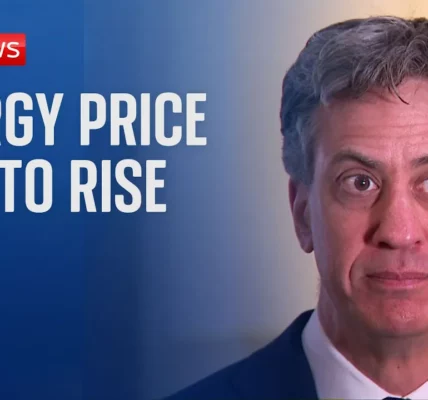Assisted Dying: A Discussion with Dame Esther and Nigel Huddleston

This article explores a profound discussion about assisted dying, featuring insights from Dame Esther and Nigel Huddleston. We delve into the complexities of personal choice, the implications of palliative care, and the societal and political dimensions surrounding this sensitive issue.
Introduction
The topic of assisted dying has become increasingly relevant in contemporary society, igniting passionate debates among politicians, medical professionals, and the general public. In a recent discussion, Dame Esther and Nigel Huddleston addressed the nuances of this issue, highlighting the importance of personal choice and the experiences of individuals facing terminal illnesses. This article will unpack their insights and reflect on the implications of assisted dying legislation.
The Importance of Personal Choice
Dame Esther emphasized the fundamental idea of personal choice when it comes to assisted dying. She argues that individuals facing terminal illnesses should have the autonomy to choose how they wish to navigate their final days. The following points capture her perspective:
- Witnessing the painful death of loved ones can profoundly impact one’s views on assisted dying.
- The right to choose should extend to all individuals, regardless of their background or beliefs.
- Personal experiences, such as those shared by Dr. Hillary Jones, underscore the emotional toll of not being able to assist loved ones in their final moments.
Legislative Perspectives and Political Lobbying
During the discussion, Dame Esther addressed the role of political figures, such as the Archbishop of Westminster, in shaping the assisted dying debate. This section explores the intersection of religion and politics in this context.
Religious Perspectives
Dame Esther acknowledged the validity of diverse religious beliefs, emphasizing that these should not dictate the choices of those who may not share the same faith.
Political Lobbying Concerns
She expressed concern over the Archbishop’s attempt to influence public opinion through organized lobbying, arguing for the right of individuals to make personal decisions without external pressure.
The Role of Palliative Care
Concerns about the potential impact of assisted dying on palliative care were a significant point of discussion. Dame Esther presented a nuanced view of how these two aspects can coexist.
Evidence from Other Countries
Referring to evidence gathered in the select committee report, Dame Esther highlighted that:
- Assisted dying legislation in other countries has not harmed palliative care practices.
- In some cases, the introduction of assisted dying has enhanced palliative care services and practices.
Addressing Concerns from Disabled Communities
She recognized the fears expressed by some disabled individuals regarding the potential for coercion in assisted dying scenarios. It is crucial to ensure that:
- Assisted dying is only available to individuals who can make informed choices.
- Protections are in place to prevent any form of pressure on vulnerable individuals.
Public Sentiment and Future Legislative Changes
The discussion also touched on the changing sentiments regarding assisted dying legislation among Members of Parliament (MPs). Dame Esther expressed uncertainty about whether the outcome would differ from previous votes.
Historical Context
Reflecting on past votes, she acknowledged the strong feelings on both sides of the debate. This context is vital for understanding the current political landscape.
Anticipating Future Debates
As the debate approaches in November, the outcomes will depend on:
- The evolving public opinion on assisted dying.
- The engagement of different advocacy groups.
- Potential shifts in the perspectives of key political figures.
Conclusion
Dame Esther’s discussion with Nigel Huddleston sheds light on the multifaceted nature of assisted dying. Emphasizing personal choice, the importance of palliative care, and the need for respectful dialogue amidst differing beliefs, the conversation calls for thoughtful consideration as the legislative debate approaches. It is crucial for society to engage in these discussions to navigate the complexities surrounding end-of-life care and individual rights.
For further reading on related topics, consider visiting our articles on palliative care advancements and the current laws on assisted dying worldwide.
“`




